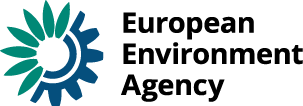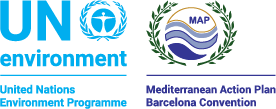Israel - 9th July National Webinar Horizon 2020 and SEIS achievements
In the framework of the EU funded project ENI SEIS II South Support Mechanism, the SEIS national team of Israel organised on 9th July 2020 via an online platform a national webinar. The meeting gathered representatives from different national institutions such as the Ministry of Environment Protection (MoEP), Israeli Central Bureau of Statistics (ICBS) and Ministry of health as well as the European Environment Agency (EEA), UNEP/MAP Barcelona Convention, Environment Agency Austria and European Topic Centre Inland, Coastal and Marine Water (ETC/ICM) - Deltares.
The purpose of the meeting was to present the main conclusions from the Horizon 2020 assessment (regional and national assessment) and exchange on the main achievements and success stories that marks the 4 years of cooperation effort and engagement in support to EU external policy initiative and implementation of SEIS principles in the Mediterranean region.
The meeting took stock of the main achievements, presented the main conclusions from the H2020 regional and national assessment report, and shared the success stories
At the national level Israel has gained big achievements in abating land based sources and tackling hot spots of pollution in the Mediterranean Sea. In 2010, Israel became an OECD member, hence increasing attention to environmental management, as reflected in the Israel 2017 State of the Environment Report. Based on a complete production of Horizon 2020 indicator set, the national assessment shows the reduction of most pollutants.
The construction of 8 large volume anaerobic digesters in the Shafdan wastewater treatment plant has enabled the treatment of the sludge to a level defined in the regulations and that can be used safely in the agriculture sector, preventing the elimination of the sewage sludge into the Mediterranean Sea. In addition to this significant improvement, other measures were implemented, such as: installations permits, use of the best available technologies, inspection and enforcement and very high fees and penalties. All together, those actions significantly reduced the majority of pollutants to a scale of 98-99% reduction, compared to the past.
Further achievements are observed in the area of waste management, Israel has reached 24% of recycling of municipal solid waste. The adoption of a new waste strategy that aims at preventing landfilling, increases the pressure on finding and investing in new treatment facilities such as mechanical biological treatment (bio-waste) and waste to energy will increase efforts towards prevention at source and circular economy.
Data used for the assessment are stemming from different sources MoEP, ICBS, Ministry of Health and Water Authority. Data collection include surveys such as the ICBS survey for industrial waste and the composition waste survey by MoEP as well as the wastewater information system on effluents and loads, shared among different ministries (Ministry of Health, Ministry of Environment Protection and Ministry of Water).
The past 4 years of cooperation demonstrated a very good coordination at the national level to collect, analyse and regularly assess the state of the environment. Good quality data for decision makers, meaningful assessments and integration remains a priority. Plastic remains a challenge as the recent assessment shows that Municipal Solid Waste generation grew by 37%, plastics fraction doubled and the fraction of recycled plastic has remained at only ~4.4%. Tackling municipal solid waste and the plastic fraction of the waste and marine litter will remain a priority for the agenda post 2020.
The SEIS focal point Dr. Orna Matzer (MoEP) and Dr. Moshe Yanai (ICBS) thanked the EEA and UNEP/MAP for their support to achieve the project results and support towards a regular production and sharing of quality assessed environmental data, indicators and information in line with SEIS principles. More specifically MoEP representative expressed appreciation of the In-Country support, as well as Eionet expertise shared in a number of thematic areas such as waste data management, waste prevention and Marine litter.
Cécile Roddier-Quefelec on Behalf of EEA and UNEP/MAP thanked the participants and SEIS national focal points for the organisation of this event and giving the opportunity to this exchange, and demonstrating the efforts made contributing to these important achievements.
More information on MoEP website: https://www.gov.il/en/departments/news/moep_participated_in_seis_shared_environmental_information_system_project


